Antibody Engineering & Therapeutics commences on Thursday, December 14, 2023! Visit us at Booth #113 for a free T shirt and networking.
And don’t miss the keynote address by Dr. Heather Bax, the 2023 Huston Award recipient.
the official website of the antibody society
Antibody Engineering & Therapeutics commences on Thursday, December 14, 2023! Visit us at Booth #113 for a free T shirt and networking.
And don’t miss the keynote address by Dr. Heather Bax, the 2023 Huston Award recipient.
 On October 26, 2023, Eli Lilly and Company announced that the U.S. Food and Drug Administration approved Omvoh™ (mirikizumab-mrkz) infusion (300 mg/15 mL)/injection (100 mg/mL) for the treatment of moderately to severely active ulcerative colitis (UC) in adults. The approval was based on results from the LUCENT program, which included two randomized, double-blind, placebo-controlled Phase 3 clinical trials consisting of one 12-week induction study (UC-1) and one 40-week maintenance study (UC-2) for 52 weeks of continuous treatment.
On October 26, 2023, Eli Lilly and Company announced that the U.S. Food and Drug Administration approved Omvoh™ (mirikizumab-mrkz) infusion (300 mg/15 mL)/injection (100 mg/mL) for the treatment of moderately to severely active ulcerative colitis (UC) in adults. The approval was based on results from the LUCENT program, which included two randomized, double-blind, placebo-controlled Phase 3 clinical trials consisting of one 12-week induction study (UC-1) and one 40-week maintenance study (UC-2) for 52 weeks of continuous treatment.
Mirikizumab (LY3074828) is a humanized IgG4ҡ monoclonal antibody that blocks the activity of interleukin 23 by targeting the p19 subunit the cytokine. The antibody is engineered with the following mutations: S228P for hinge stabilization, F234A and L235A to abrogate effector function, and K447> del to reduce IgG4 C-terminal heterogeneity.
The recommended induction dosage is 300 mg administered by intravenous infusion over at least 30 minutes at Weeks 0, 4, and 8. The recommended maintenance dosage is 200 mg administered by subcutaneous injection (given as two consecutive injections of 100 mg each) at Week 12, and every 4 weeks thereafter. Lilly received approval for Omvoh in Japan and the European Union earlier in 2023.
This competition was designed to acknowledge and encourage the creativity of our members involved in imaging studies. We had a fantastic turn out and thank all entries for your efforts.
We have short-listed 12 images which will made into a calendar for distribution by The Antibody Society at the Antibody Engineering & Therapeutics meeting in December. Congratulations!
But we would like you, our members and followers, to decide the winner.
The winner will be announced on the 1st of August!
Please see the short listed images below.
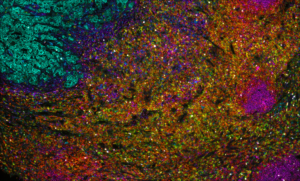
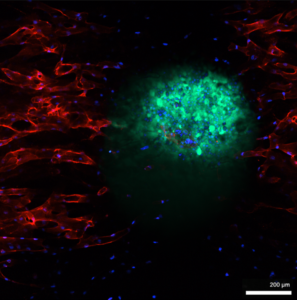
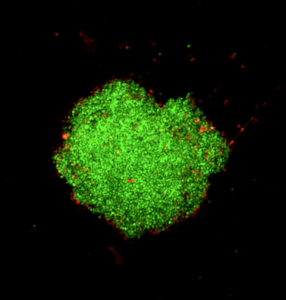
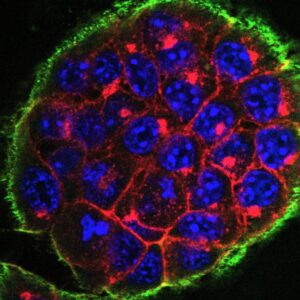
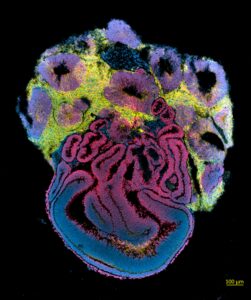
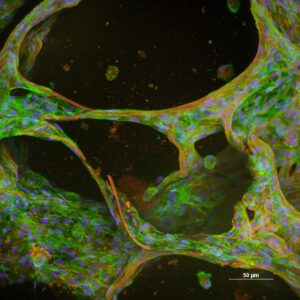
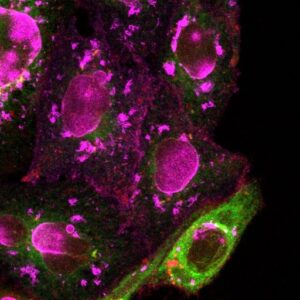
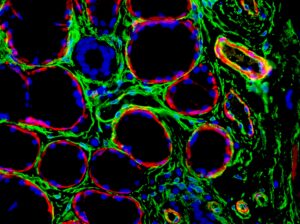
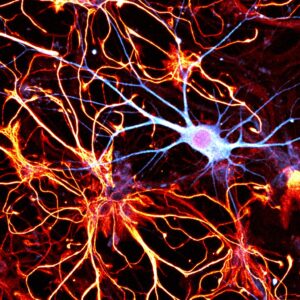
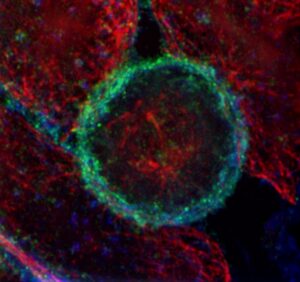
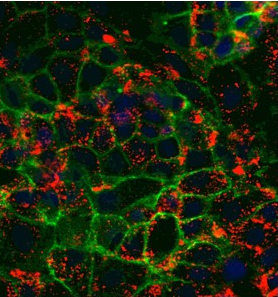
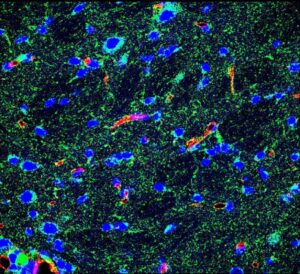
To make science accessible, we need clear and concise communication. The Antibody Society thus offers our student and post-doc members a chance to grow this skill through a Science Writing Competition. This competition is organized and managed by the Society’s Communications & Membership Committee. Entrants submitted essays of 1200 – 1500 words on a topic related to antibody research that were evaluated by our panel of judges.
Our student winner is:
Essay title: Antibodies, those party poopers
Our post-doc winner is:
Essay title: On the Origins of Antibodies: Natural and Man-made
Winning essays from previous Science Writing Competitions can be accessed here.
Recent advances in computational and machine learning sciences have had a substantial impact on the antibody discovery process. Novel protocols that incorporate computational approaches can now be used to generate functional antibody therapeutics with good developability. In silico methods complement existing experimental strategies, and their use has become more mainstream in the biopharmaceutical industry. However, the application of computational de novo design strategies requires a thorough understanding of their capabilities, limitations, and experimental validation, as well as their place in the overall discovery pipeline and value chain.
In this Symposium, leading experts in computational antibody discovery from academia and industry will discuss their scientific strategies and progress to date. The event aims to provide a platform for better understanding of the breakthroughs and future directions in this multidisciplinary field, through talks, a panel session, and your questions and insights.
The Symposium commences at 8am PT/11am ET/4pm BST/5pm CET with speakers Drs. Pietro Sormanni, Yanay Ofran, Victor Greiff, Sandeep Kumar, and Ben Holland. The panel session, moderated by Konrad Krawczyk and including Jiye Shi, Tom Diethe and several speakers, will start at ~2pm ET. The Symposium concludes at 3pm ET following final remarks by Andrew Buchanan.